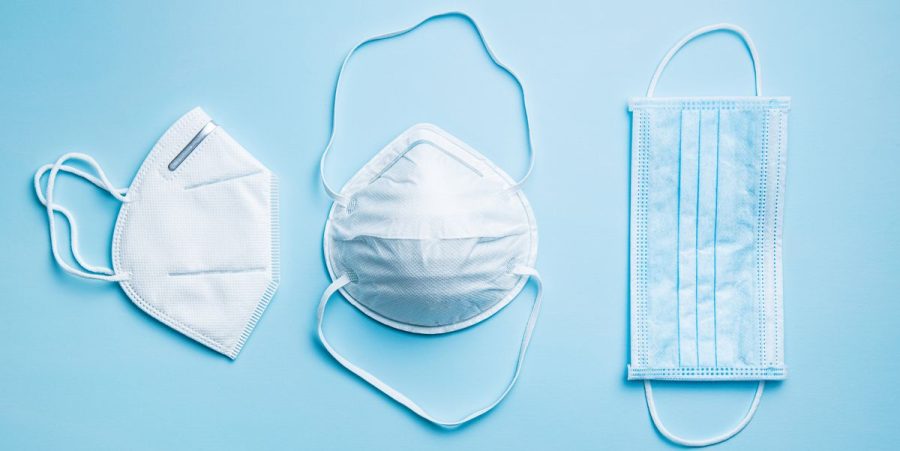Mask Mandates and Your Rights
Mask Mandates and Your Rights
February 1, 2022
With the spike of the Omicron variant, an almost 3-year old question has once again risen to prominence: Should the U.S government enact federal mask mandates? Many jurisdictions have encouraged or mandated citizens to wear masks when out in public. This can be maintained within areas where keeping a social distance is nearly impossible, such as on public transportation systems, schools, and grocery stores. Some directives also obligate employers to provide masks to their employees. With the development of these mandates, there is another political query that delves below the original question’s surface: What does this mean for the individual liberties of Americans and states? To answer both of these questions, the federal constitutionality of such a mandate should be defined.
In all, a federal mask mandate can be ordered for people and property directly under the federal government’s jurisdiction. Compliance with CDC guidelines with respect to wearing masks is required for on-duty or on-site federal employees, on-site federal contractors, as well as all persons in federal buildings or on federal lands. There is no authority that would allow a U.S President to require masks to be worn in public spaces at all times, except if it is declared that the Coronavirus is a threat to interstate commerce. While there are no explicit federal mask mandates, public health laws grant the executive branch the ability to limit the spread of COVID-19 from state to state. They are also empowered to nudge states to employ mask mandates through financial grants under the Spending and Commerce Clause. Recently, the Transportation Security Administration requires masks on airplanes and other forms of public transportation, which has expired since September 13th, 2021. While federal branches do have an influence on states through mandates, the Constitution is not necessarily on their side.
The Constitution, and its constitutional precedents, make it highly unrealistic that the federal government could enact a national mandate on the wearing of masks. Despite some states enacting mandates, some believe that even that is a breach of their own individual rights. A court in Palm Beach, Florida, in July of 2020, denied the blocking of a mask mandate ordered by county commissioners, who had claimed that the mandates violated their personal freedoms. Citing the U.S Supreme Court’s decision in Jacobson v. Massachusetts, the State Circuit Court Judge John S. Kastrenakes quotes that “the right to be free from governmental intrusion does not automatically or completely shield an individual’s conduct from regulation.” While this may have been the result of one state, other state courts, such as one in Arkansas, enacted a state law banning mask mandates at schools.
While there is a huge question of constitutionality when it comes to federal or state mandates, there is also an overall moral question surrounding masks. Scientifically, standard COVID-19 masks are not meant to protect ourselves but are primarily meant to protect those around us. So, while there is a valid conversation around an individual’s right to wear or not to wear a mask, this does not necessarily mean that their choices have zero impact on those around them. When we wear masks, it is not solely a statement about the current political climate, nor is it an opportunity to virtue-signal. Wearing a mask alone is meant to prevent our respiratory droplets from spraying onto other people when we cough, sneeze or talk. It can be argued that to wear a mask around others is to respect the liberties of others. Wearing a mask, if it is collectively done, is an act of community.
While we decide whether or not to exercise our civil liberties — whether or not to wear a mask — we must decide if wearing a mask is something bigger than ourselves.
